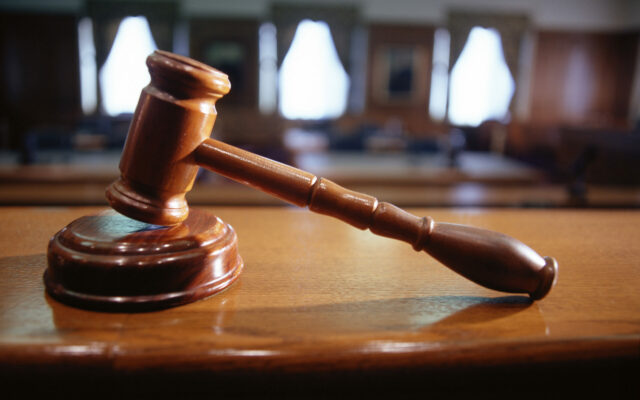NYC Democratic mayoral candidates meet in person in fiery debate

▶ Watch Video: Poll shows Kathryn Garcia leading New York City’s Democratic mayoral primary
The leading New York City Democratic mayoral candidates met in person on the debate stage for the first time on Wednesday night, bringing new energy to the race just 10 days before early voting starts. Two of the frontrunners, Andrew Yang and Eric Adams, received the most heat, and the in-person debate gave the pair the chance to condense their attack lines to each other.
At one point, the candidates were tasked with asking a competitor a question, leading to a fiery exchange between Adams, the Brooklyn Borough president, and Yang. Adams repeated his attacks on Yang in which he accused the former presidential candidate of being a newcomer to New York City government and leaving the city for his upstate house amid the COVID-19 pandemic. “You can’t run from the city if you want to run the city … you may flee again during the difficult time,” he said.
Yang shot back that Adams has been “investigated for corruption everywhere you have gone” and said he had achieved the “rare trifecta of corruption investigations” in the city, state and federal levels. Adams insisted he had been cleared of any wrongdoing and called it a racially biased line of attack.
New York City comptroller Scott Stringer, whose campaign has been in free fall since he was accused of sexual misconduct last month — an accusation again denied on stage — ended the exchange by saying “you’re both right. You both shouldn’t be mayor.”
The in-person debate was the second matchup among the major Democratic candidates ahead of the June 22 primary. The winner of the Democratic primary is widely expected to win the general election in the heavily blue city.
The field is being led by moderates Adams, Yang and Kathryn Garcia, whose campaign has picked up traction in recent weeks after endorsements from The New York Times and the New York Daily News. Stringer and Dianne Morales, both progressives, have had significant setbacks in recent weeks and the campaign of the other progressive, Maya Wiley, has yet to take off.
As in the first debate, crime and policing remained the top issue, with New York City grappling with a spike in gun violence and other crimes. Murders are up 18% and shootings are up 77% compared to this point last year, according to NYPD statistics.
“We have gone from a pandemic of COVID to an epidemic of gun violence. We have to use every tool in the toolbox,” said Garcia. The former Sanitation Department commissioner touted her vision to buy back guns, invest in a NYPD gun suppression unit and to work with the federal government to stop illegal guns from reaching New York City.
Morales, a former nonprofit executive, and Wiley, a civil rights attorney, both reiterated their plans to remove some of the NYPD’s funding.
“New York City has the most bloated police budget in the country, if not the world,” Morales, who has proposed reallocating $3 billion away from NYPD, said. “If there were, in fact, a correlation between policing and safety, we’d be the safest city in the world.”
Wiley, who wants to cut at least $1 billion from the NYPD’s budget, said the city already has “thousands of police officers and patrol cars sitting around this city.” She also called for cutting back on the types of situations police respond to, saying the city should “take away the kinds of things we’re asking police officers to do that they have no business doing.”
Yang reiterated his belief that “defunding the police isn’t the right approach for New York City” and said recruitment efforts need to step up. He said police need to solve more crimes in order to bring down violence.
“The simple truth is you will never get gun violence down if the solve rate for shootings in Brooklyn is below 25%,” Yang said in a thinly veiled attack against Adams. “You have three out of four shooters still out there. And the reason for that is just failure on the part of our government once again.”
Adams once again faced criticism for his past support for the controversial stop-and-frisk policies, as Stringer criticized “Anybody who thinks that the only solution to preventing crime is going back to the Giuliani days with stop-and-frisk and a Republican agenda that put a lot of kids in our criminal justice system and letting innocent kids went to prison.”
Adams fired back: “I fought against stop-and-frisk for 22 years when I wore the uniform. When you say Eric did not play a role to stop the abuse of stop-and-frisk, then you are trying to rewrite history.”
Morales, meanwhile, was asked to address a week of turmoil in her campaign following a contentious unionization effort, some staff departures and dismissals, a work stoppage and complaints about a toxic work environment within her campaign.
“As soon as I became aware of the situation, I intervened, I acted swiftly,” Morales said. “We responded, we addressed it, we’re moving forward on this campaign.”
The debate touched on other critical issues for New York, such as economic recovery from the pandemic, public education, homelessness and affordable housing.
“We’re on the verge of the worst eviction crisis of our lifetimes,” said former Secretary of Housing and Urban Development Shaun Donovan. “We need to invest in supportive housing. That’s permanent housing with the services that people need to get their lives back on track.”
Many of the candidates have extensive experience in government and New York City politics, but Yang and former Wall Street executive Ray McGuire have embraced their experience outside of the political sphere.
“I would encourage voters to look at those who have had decades of government experience. And what has that done for us?” McGuire said when asked about his lack of time serving in government. “You want somebody who’s got the experience I have, who has managed through crises.”
The candidates were all asked if they would like to receive endorsements from two of New York’s most seasoned politicians: Governor Andrew Cuomo and New York City Mayor Bill de Blasio. Only Andrew Yang raised his hand, saying he would take an endorsement from either leader.
The upcoming election will be New York City’s first citywide primary to use ranked-choice voting. It may take until mid-July to determine which candidate wins the mayoral primary because absentee ballots can arrive until June 29 and voters will have until July 9 to fix some issues with their mail ballots.



